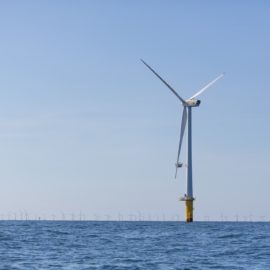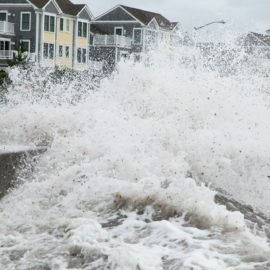
Hampered by delays resulting from COVID-19, an interim report submitted this week to Gov. John Bel Edwards by a task force on climate initiatives that he set up includes no recommendations on how to reduce greenhouse gases or how Louisiana should respond to climate change effects. Instead, it summarizes goals on how to come up with those recommendations, which were set during a 15-day series of initial meetings in December of six committees representing different business and industry sectors that create greenhouse gases and four advisory groups addressing the science, social equity, financial and legal issues that the eventual recommendations are expected to confront.
NOLA.com
The meetings involved two different groups, each with a mission, that could not reach agreement. On one side the community and environmental groups wanting assurances that reductions in emissions will occur and on the other side industry not wanting to be affected by regulations. As he introduced the report to the Governor, Climate Initiatives Task Force Chairman Chip Kline, who also chairs the state Coastal Protection and Restoration Authority, noted:
“While climate change cannot be solely blamed for each of the storms of 2020 or all of their attributes, it is more undeniable than ever that our state has much to lose if the global community cannot reduce greenhouse gas emissions to avoid the worst impacts of the climate crisis,” Kline wrote. “It is long overdue for Louisiana to examine its own role in this problem and take actions that minimize the negative impacts we ourselves do and will continue to suffer.”
Kline noted there was a tension between both hazards for existing businesses and their employees, and potential new opportunities for high-paying jobs supporting more climate-friendly businesses and industries. The new jobs could help protect us in the future.
The task force is charged with determining a strategy to cut the state’s greenhouse gas emissions – carbon and “carbon equivalent” emissions – by 26 to 28% from 2005 levels by 2025, 50% by 2030, and to have the state be a net zero generator of emissions by 2050. After 2050, any carbon emissions created in the state would have to be offset by the removal of a similar amount of carbon from the atmosphere.
The goals to be reached come from the Paris Climate Accord which the United States has recently rejoined. Specific goals were noted for sectors of the state’s economy but there was a lack of current data. LSU Center for Energy Studies has agreed to come up with better more current data. At some point the commission will have to make hard decisions and stop “kicking the can down the road”. The commissions meetings can be seen and results noted at the task force website.



